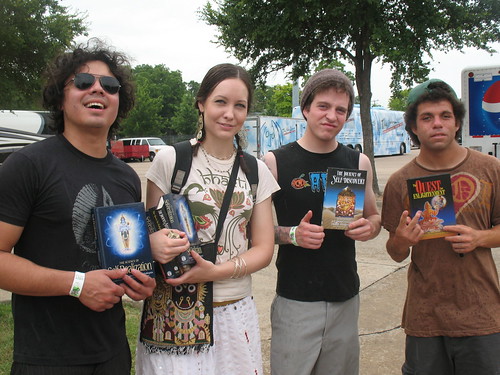
Dallas Morning News,
Each week we will post a question to a panel of about two dozen clergy, laity and theologians, all of whom are based in Texas or are from Texas. They will chime in with their responses to the question of the week. And you, readers, will be able to respond to their answers through the comment box.The debate over health care has revolved, perhaps appropriately, around cost, availability and the limits of partisan compromise. But is health care more than a political issue? Is it fundamentally a moral issue? And if so, does that mean that providing expanded - or universal - health care is a moral imperative, not just a programmatic choice?
Catholic social teaching says that just societies are those in which basic needs are met. For those who believe that health care is a moral issue, the question isn't whether it should be provided: a just society must provide it. For those who see health care as a policy issue, the status quo -- or any of the variations under consideration in Congress - are equally appropriate solutions, depending on our resources and our politics.
Here's the question: Is health care a moral issue? If so, doesn't that mean we must do whatever is necessary so that everybody has health care?
For some thoughtful and provocative responses from our Texas Faith panel, keep reading.
NITYANANDA CHANDRA DAS, minister of ISKCON (International Society for Krishna Consciousness), Dallas
Morality must be defined over status quo morality. That which is conducive to one's progression in developing love for God is considered moral. That which is not conducive to spiritual upliftment is considered immoral. Is health care conducive to developing love for God and is therefore moral ? Yes, a healthy body and mind is progressive and is certainly not regressive. As the saying goes in India, "Fire, debt, and disease, these three must be taken care of immediately"
Minimal health care should be provided universally, but it would not be conducive to health of society to pay out large amounts of money on preventable diseases. Obesity, cancer, HIV, and many other illnesses that plague us Americans in most cases can be prevented by a healthy lifestyle. Rather than funds being used to cater for bad habits, money should be used to educate the public how to live healthy. Yoga, Ayurveda, vegetarianism, organic foods, non Genetically Modified Foods, healthy family life, attached parenting, and so on should be promoted and taught in school and other facilities. Similarly cigarettes, alcohol, loose sexual relations, meat eating, over working, gambling, and other destructive elements should be discouraged in the same way. This will drastically reduce health care cost and will provide a better quality of life for American citizens.
Hare Krishna :)
Your humble servant,
Nityananda Chandra Das
To see all the responses from the Texas Faith Panel click here




